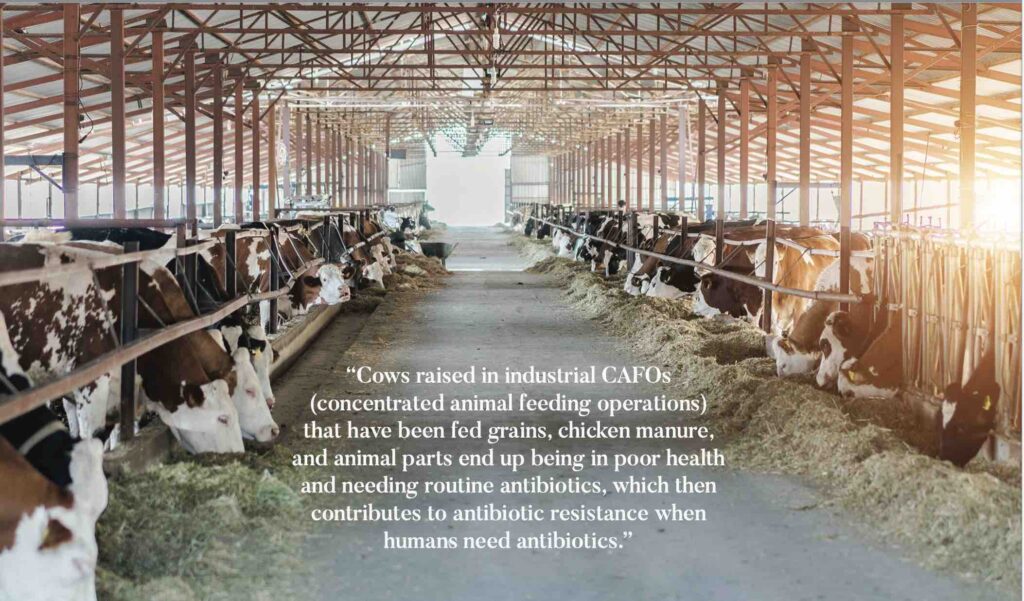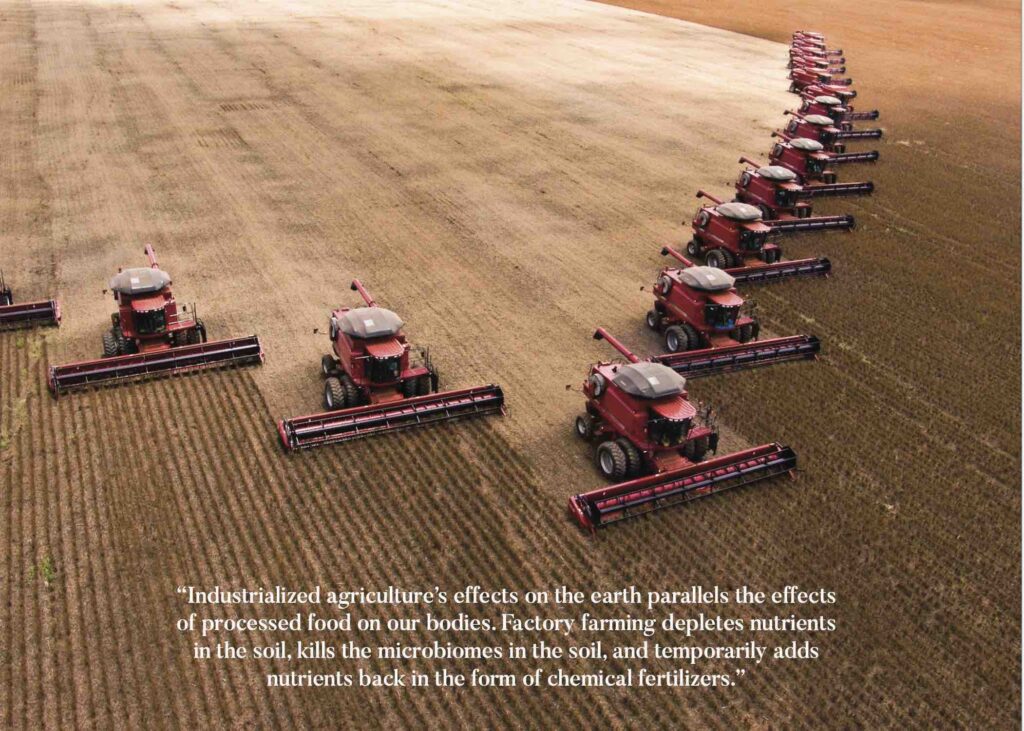Mouthwash.
This seems to be my litmus test lately for finding my tribe of like-minded people who practice holistic health and wellness.
What does mouthwash have to do with overall health? Exactly. It’s all connected.
Mouthwash and Erectile Dysfunction
Conventional mouthwash kills all the bacteria in your mouth indiscriminately. Bad breath germs as well as the beneficial microbiome die. Some of the good bacteria in our mouths produce nitric oxide.[i]
Dubbed “Molecule of the Year” in 1992 by the prestigious Science journal, one of nitric oxide’s primary purposes is regulating blood vessel dilation. Low levels of this molecule have been implicated in a variety of medical issues from high blood pressure to diabetes to erectile dysfunction.
The mouthwash commercials said that it would freshen your breath to make you attractive, but they neglected to mention the potential trade off in sexual performance!
Here’s a tip: drink some green juice, eat some parsley or gargle with baking soda and water to freshen your breath without killing your nitric oxide-producing microbiome.
As most of you readers are patrons of the Be Hive of Healing, you know that Dr. Sherry Sami is an integrative dentist who, of course, knows about mouthwash killing the microbiome. Likewise, Dr. Habib Sadeghi is a member of the American Holistic Medical Association.
Holistic Health and Wellness
I was pleasantly surprised to find another member of the tribe who passes the mouthwash litmus test and is a spiritually conscious and holistic healer—Dr. Pankaj Vij, the author of Turbo Metabolism.
Dr. Vij started a Lifestyle Medicine program at Kaiser Permanente in Northern California to reverse diabetes and heart disease using a holistic approach that includes a whole foods plant-based diet, exercise, and meditation.
I was impressed that Dr. Vij could thrive in a large medical group practice such as Kaiser, where primary care physicians are allotted 10 to 15 minutes per patient on average.
A more typical large medical group experience that comes to mind is that of my colleague’s tween-aged daughter, who had become mysteriously ill. Her pediatrician had taken lab tests, prescribed antibiotics, and the daughter was still having headaches, fever, nausea, and general malaise.
“Didn’t you just move into a new house?” I asked my co-worker. “Maybe there is off-gassing from the new carpet, draperies, and/or bedding that is making her sick.” As it turns out, I was right. It’s all connected.
Yet given the brief window of time the pediatrician had to spend with the patient, the doctor wouldn’t have been able to get a holistic lifestyle history about the child.
In contrast, Dr. Sami is in private practice and has the freedom to prioritize the time needed to create a comprehensive file on each patient with over 100 medical, dental, and lifestyle questions.
Most people are on board now with regards to the mind-body connection. We know that stress affects the body and that many chronic diseases are related to lifestyle factors such as stress, diet, and exercise.
As for the mouthwash connection, people aren’t quite there yet. The concept of the gut microbiome was barely a blip on the radar in science 20 years ago. It gained momentum when the Human Microbiome Project was launched in 2007 and emerged in mainstream media around 2010.[iii]
It makes sense that the microbiome would be connected to the gastrointestinal system, but it’s more of a stretch to consider that the microbes in your gut could affect your emotions, mood, and immunity, and be linked to diabetes, allergies, obesity, autism, and other medical issues.
Likewise, it’s hard to imagine that mouthwash could affect your blood pressure, erections, and risk of developing diabetes.
Yet it’s all connected.
Immune System Development

We are not machines that can be compartmentalized. We are holistic beings. Beginning with birth—cesarean sections (C-sections) have evolved from an occasional medical intervention to save lives to an elective procedure of convenience that can accommodate the obstetrician’s schedule, keep the mother’s vagina tight and sexy, and boost higher revenues for the hospital.
At first glance, the outcome is the same—a baby. Yet research in recent years shows that babies delivered by c-section bypass the big dose of immunity-boosting bacteria in the birth canal. As a result, c-section babies are at greater risk of developing immune diseases such as allergies, asthma, and type I diabetes.[iv], [v], [vi] Likewise, babies who are fed formula miss out on the immunity-building properties of breast milk. It’s all connected.
Baby formula is a processed food. On paper, it appears to have all the appropriate nutrients. Yet focusing on specific nutrients doesn’t work as well as eating the whole food with synergistic components, such as immunity-building probiotics from Mom.
Gluten Allergy or Glyphosate Toxicity?
Another example of the problem with thinking in insolation is the creation of genetically modified wheat. There is wheat that has been genetically modified to be immune to the herbicide glyphosate, which is the primary component in Roundup.
This makes it much easier to farm—just spray lots of glyphosate all over and it will kill all plants (weeds, competing plants, everything) except for the GMO wheat, allowing the GMO wheat to thrive.
However, this has created unintended consequences—the side effect of cancer and other health problems for the farmers and many consumers who have come to believe that they are allergic to wheat or gluten, but are actually just having a toxic reaction to poison.[vii] It’s all connected.
Industrial Agriculture
Industrial agriculture was developed after WWII with the noble intention of being able to feed more people on the planet. Now, the short-term gain of filling Big Ag’s coffers has obscured the far-reaching global consequences of soil depleted of nutrients, polluted water, a life of suffering for factory-raised animal “products,” the extinction of wildlife, increased antibiotic resistance in humans, and processed food that is detrimental to the human microbiome and contributing to the increase of chronic illnesses.
With regards to the quest for feeding more people on the planet, the problem isn’t a lack of food. Rather, it’s the lack of access to food. In fact, we have had a surplus in monocrops such as corn and soy, and food scientists and marketers are employed to figure out how to unload the excess by getting people to consume more food processed from these surplus ingredients.
Factory Farming

Cows raised in industrial CAFOs (concentrated animal feeding operations) are fed grains, which their stomachs aren’t made to digest, no matter if the grains are organic or not. Cows’ stomachs are designed for eating grass. On top of that, the FDA allows factory farms to supplement cattle feed with chicken manure, pig or horse parts, and cow parts that are not infected with mad cow disease.[viii]
These herbivore cows that have been fed grains, chicken manure, and animal parts end up not being in the best of health and needing routine antibiotics, which then contributes to antibiotic resistance when humans need antibiotics—it’s all connected.
In contrast, the erudite holistic farmer, Joel Salatin, considers his mission to be a “land healer.” Salatin’s Polyface farms gained national recognition after being featured in Michael Pollan’s Omnivore’s Dilemma and the movie Food Inc.
In Polyface’s biodiverse ecosystem, the herbivore cows eat their natural diet of grass and are moved to new pasture daily so the grass gets a rest and can continue to grow. The egg-laying hens follow the cows in the pasture rotation to eat bugs and scratch through the cow dung for maggots.
In the winter, the cows are fed hay in a shed, where they lounge on a bed of wood chips, sawdust, and hay to absorb their excrement. After the cows are done, corn is added to the fermenting compost and the pigs are brought in to root around for corn, aerating the compost in the process, to make a rich, natural fertilizer.
In Salatin’s self-contained ecosystem, he doesn’t have to pay for or waste fossil fuels in transporting cattle feed, fertilizers, soil conditioners, antibiotics, or cow manure disposal. (See Joel's book, Everything I Want to Do Is Illegal.)

Industrialized agriculture’s effects on the earth parallels the effects of processed food on our bodies. Factory farming depletes nutrients in the soil, kills the microbiomes in the soil, temporarily adds nutrients back in the form of chemical fertilizers, and with the plants’ immunity weakened, chemical pesticides need to be applied.
Factory farmed and processed food depletes nutrients in our bodies, kills the microbiomes in our gut, and with our bodies’ immunity weakened, chronic illnesses develop, for which pharmaceuticals are prescribed to manage the symptoms.
Isn’t it interesting that there are multinational conglomerates with a complete cradle-to-grave portfolio that includes industrialized agriculture, processed food manufacturers, and pharmaceutical companies? It’s all connected.
So the next time you are presented with a choice that is seemingly innocuous and maybe even beneficial, remember that it’s all connected.
Mouthwash to kill bad breath germs? Organic baby formula? Cheap factory-farmed or processed food?
It’s all connected.
Originally published in the now-defunct health and wellness journal, MegaZEN, Vol. 7.
Note: I wrote this article a year before it was published. More information with regards to Roundup's toxic effects has emerged since--it appears that the inert ingredients or the combination of the inert ingredients with glyphosate makes it exponentially toxic. I came across this new information while working on my book, Nature's Palette.
Update: On June 24, 2020, Monsanto's parent company, Bayer, announced it would pay up to $10.9 billion to settle the approximately 125,000 cases out of court.

